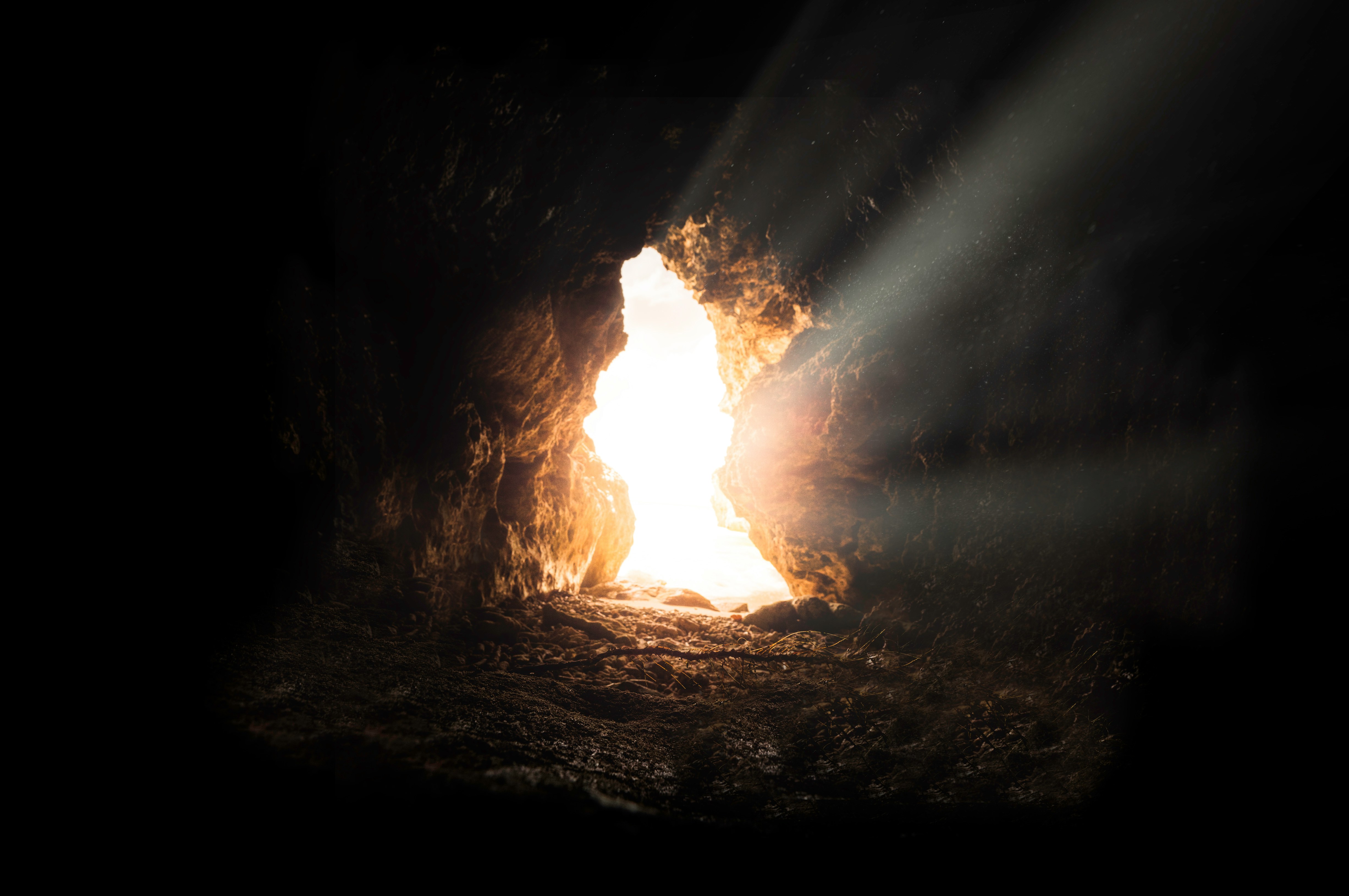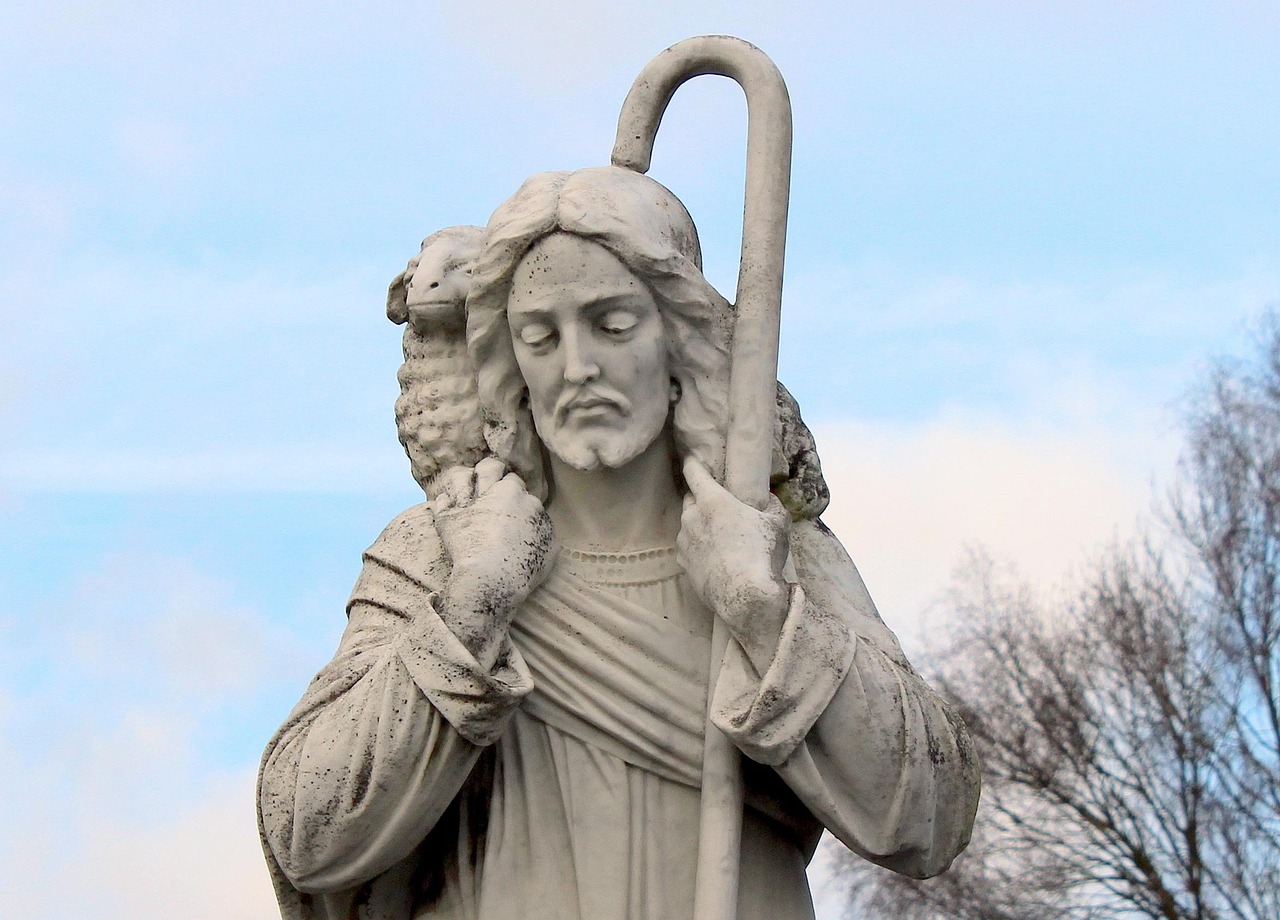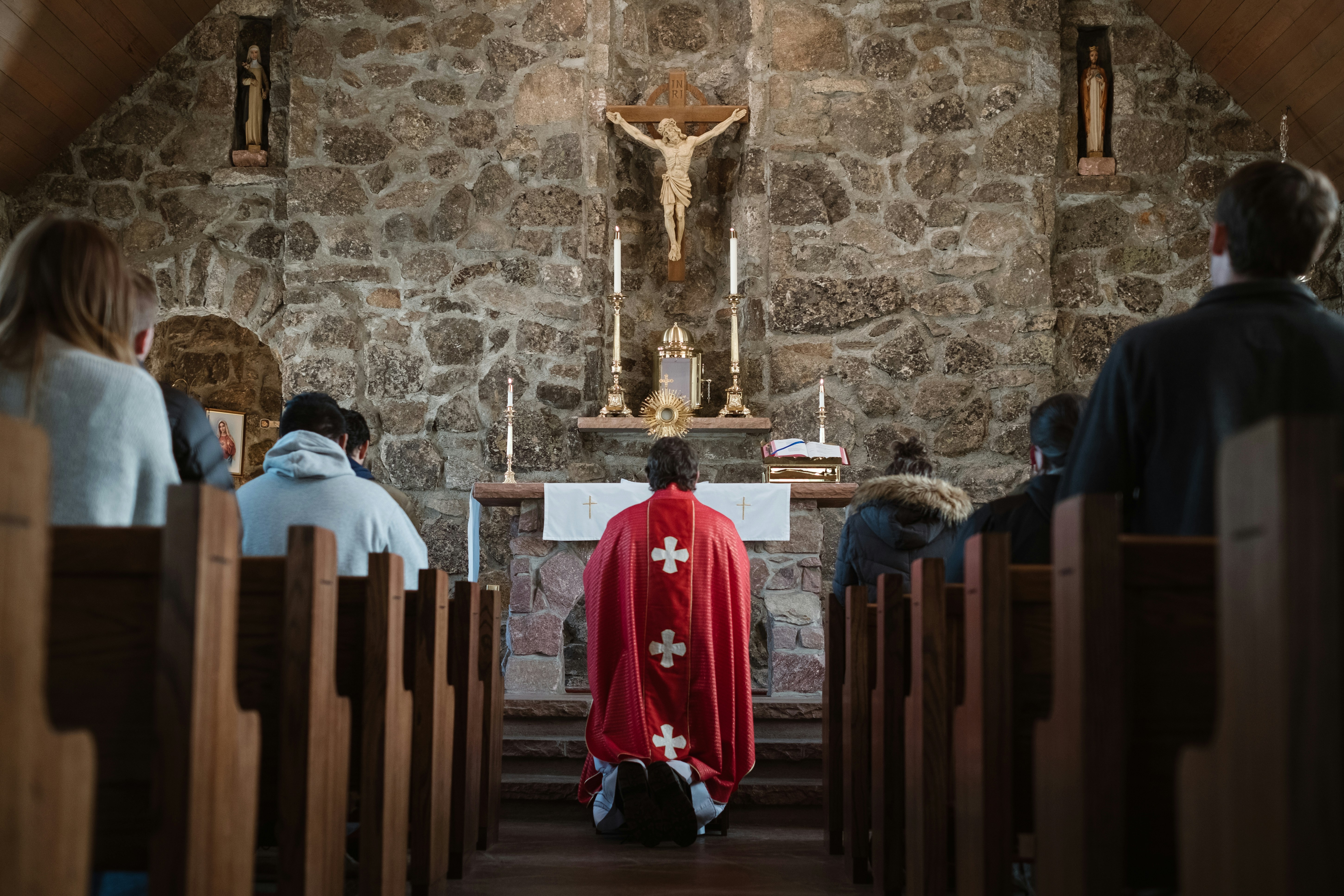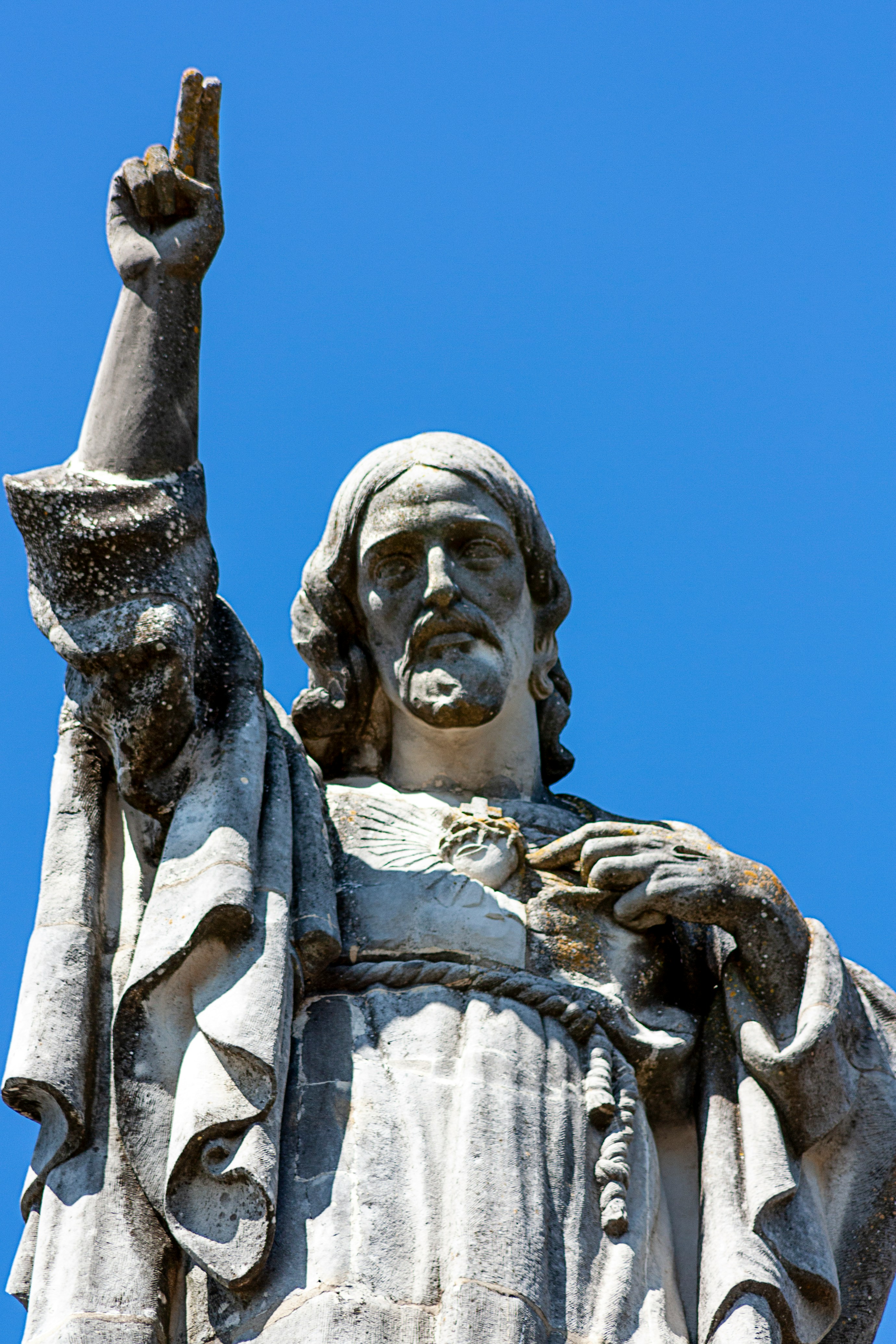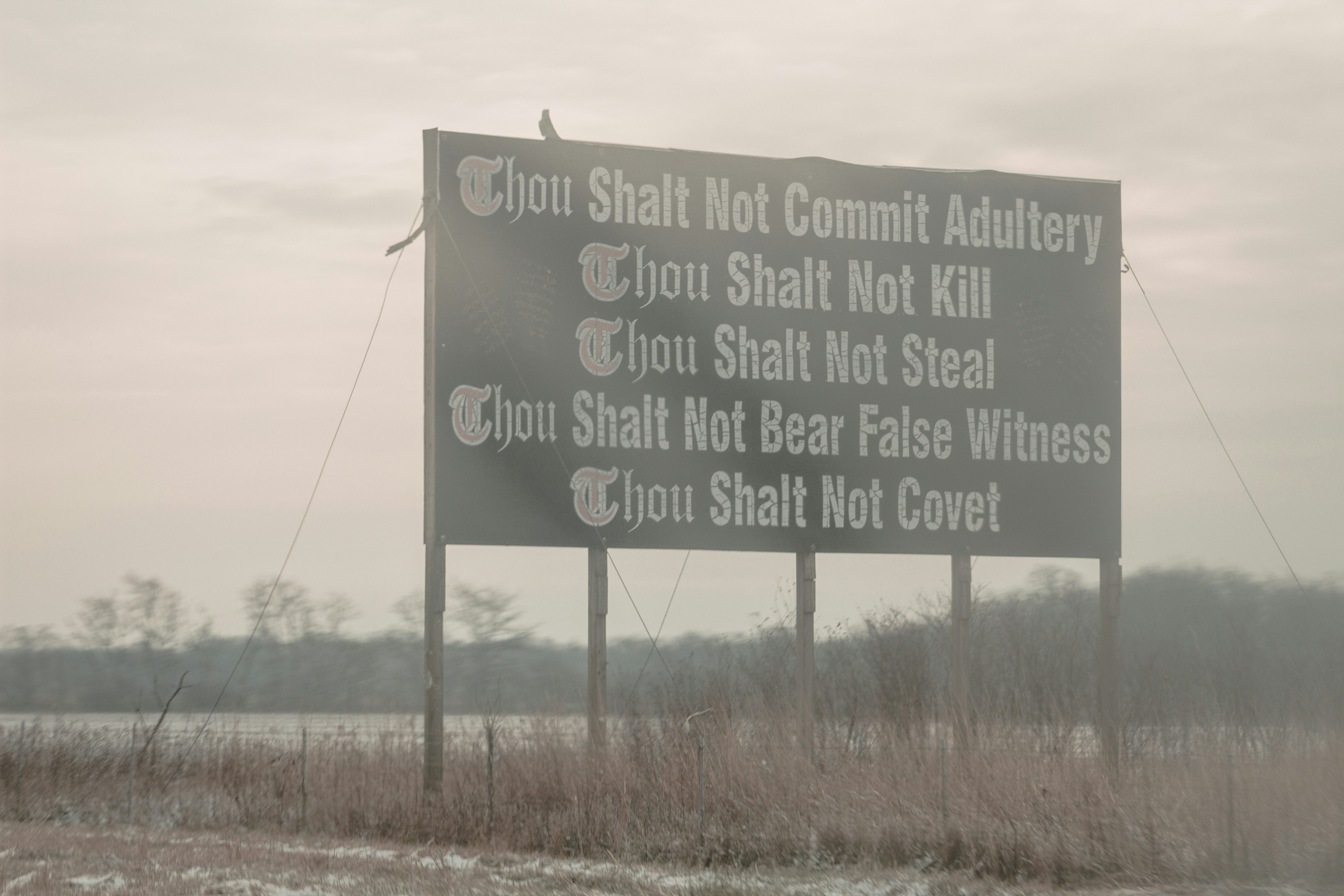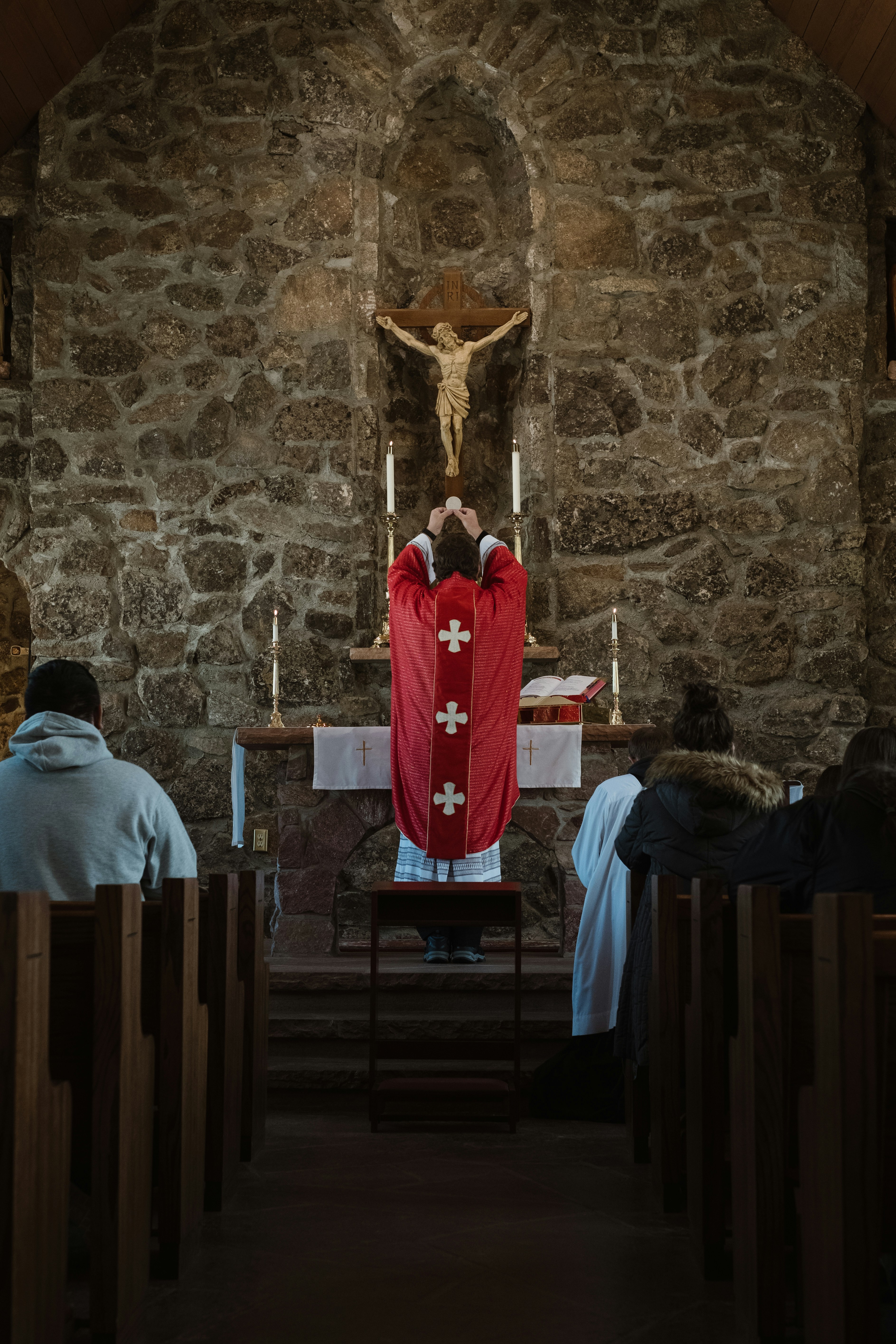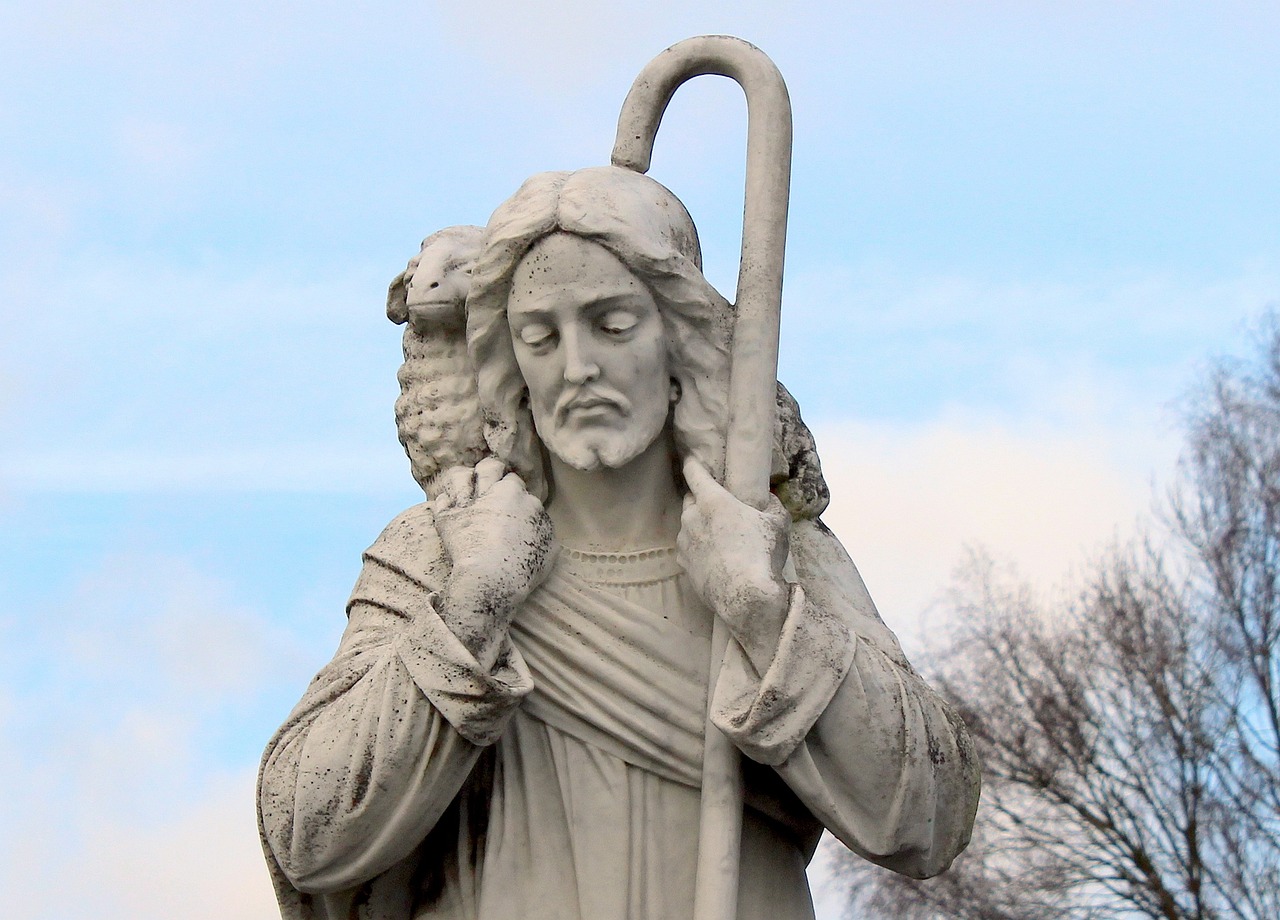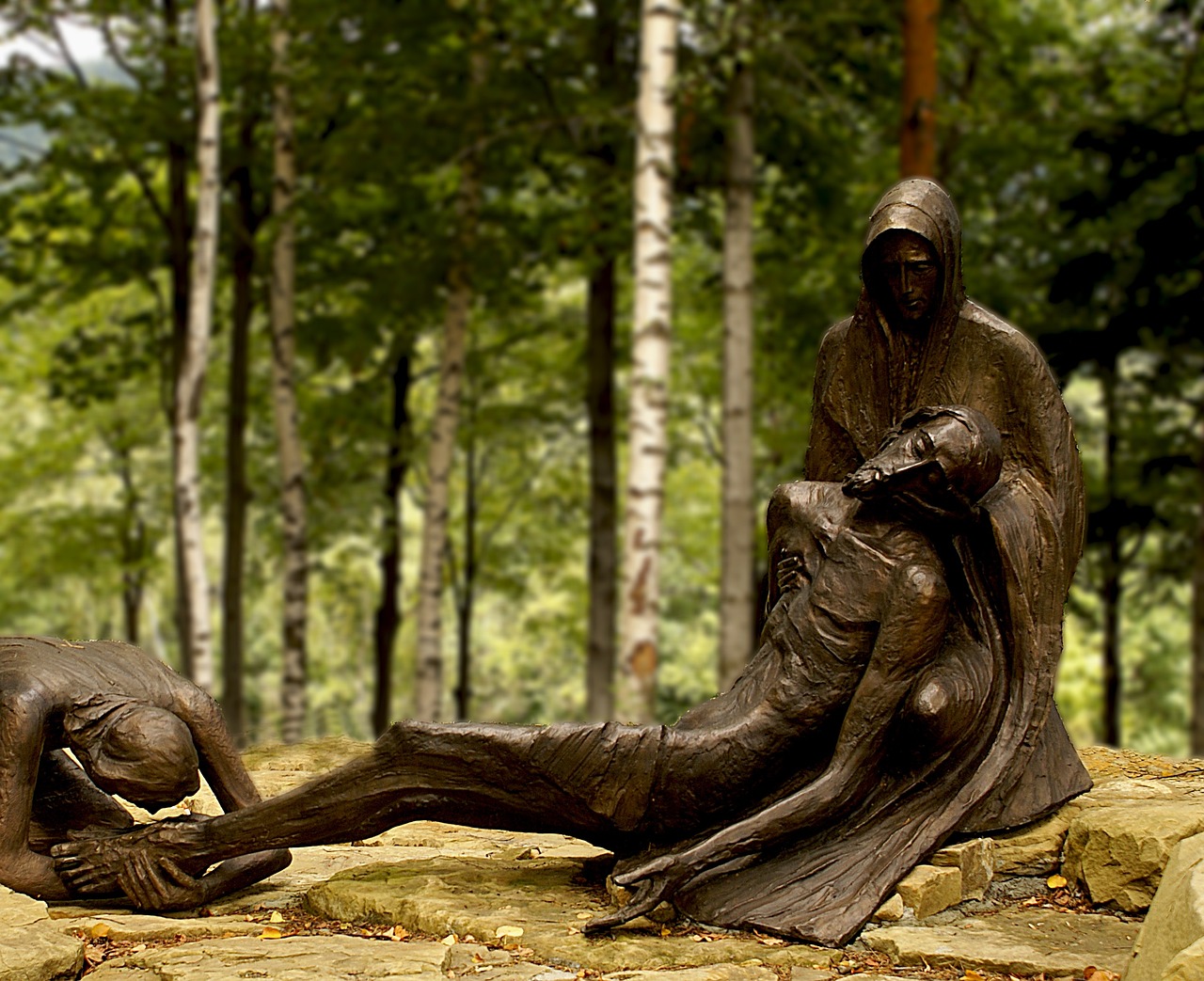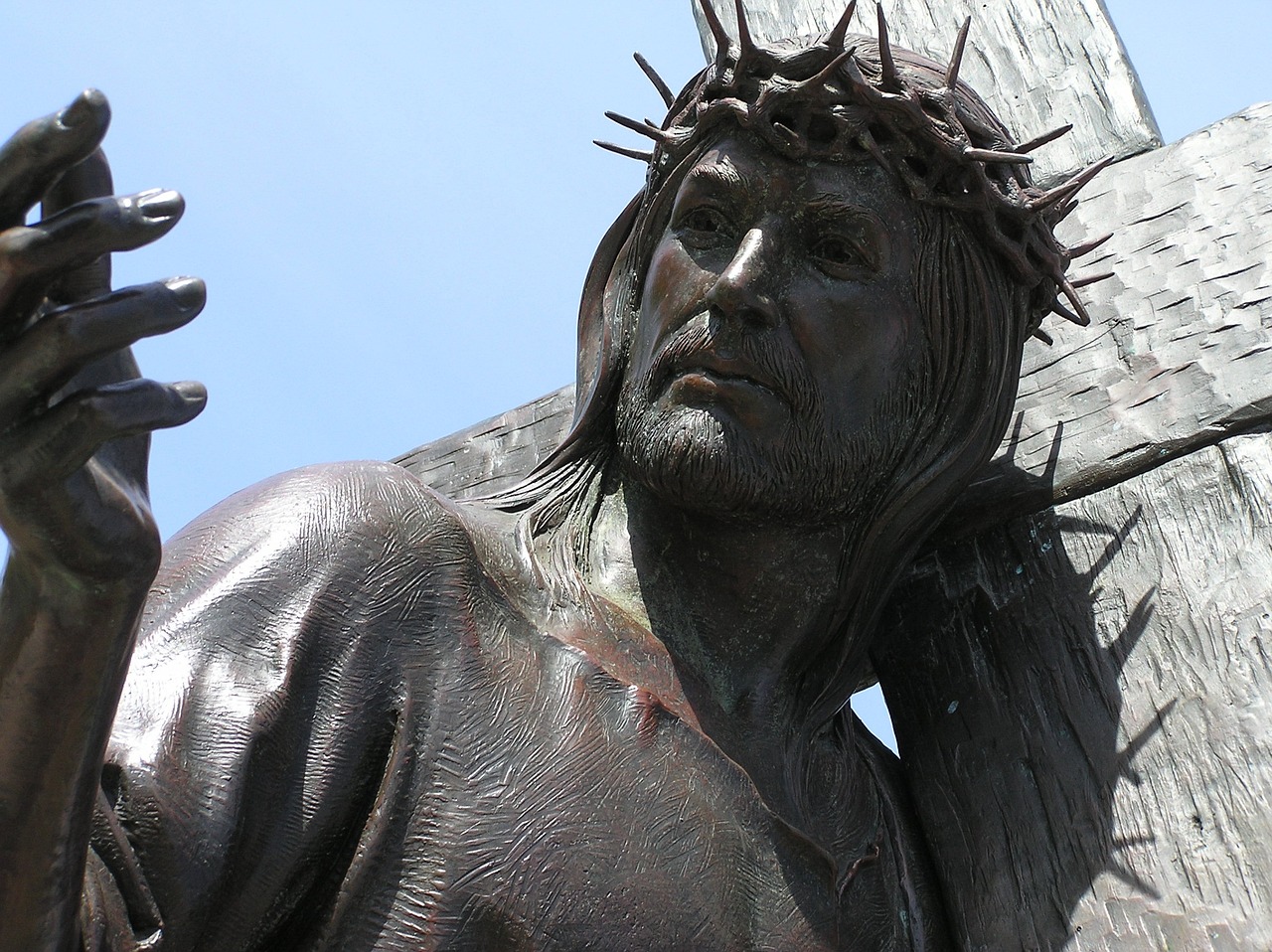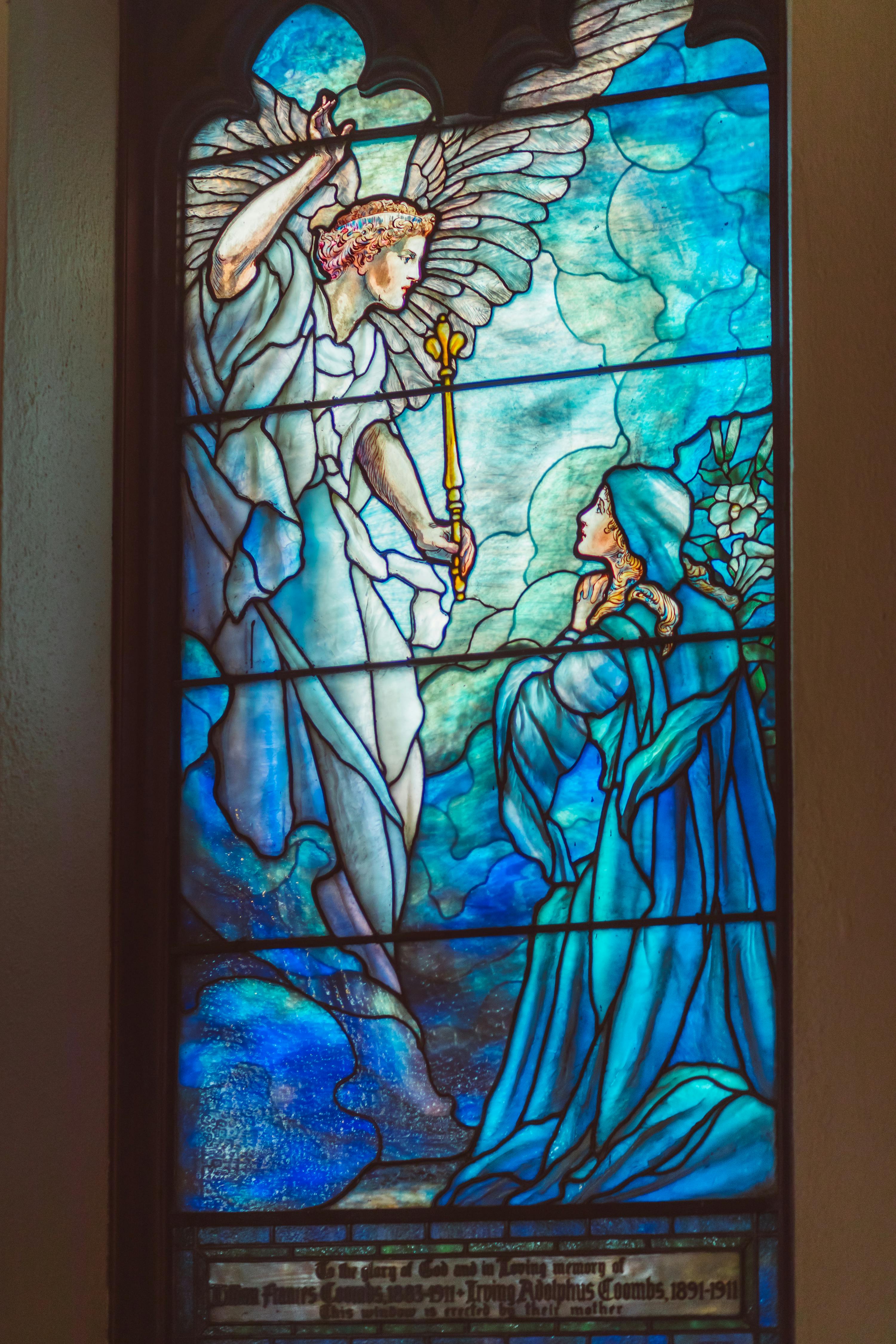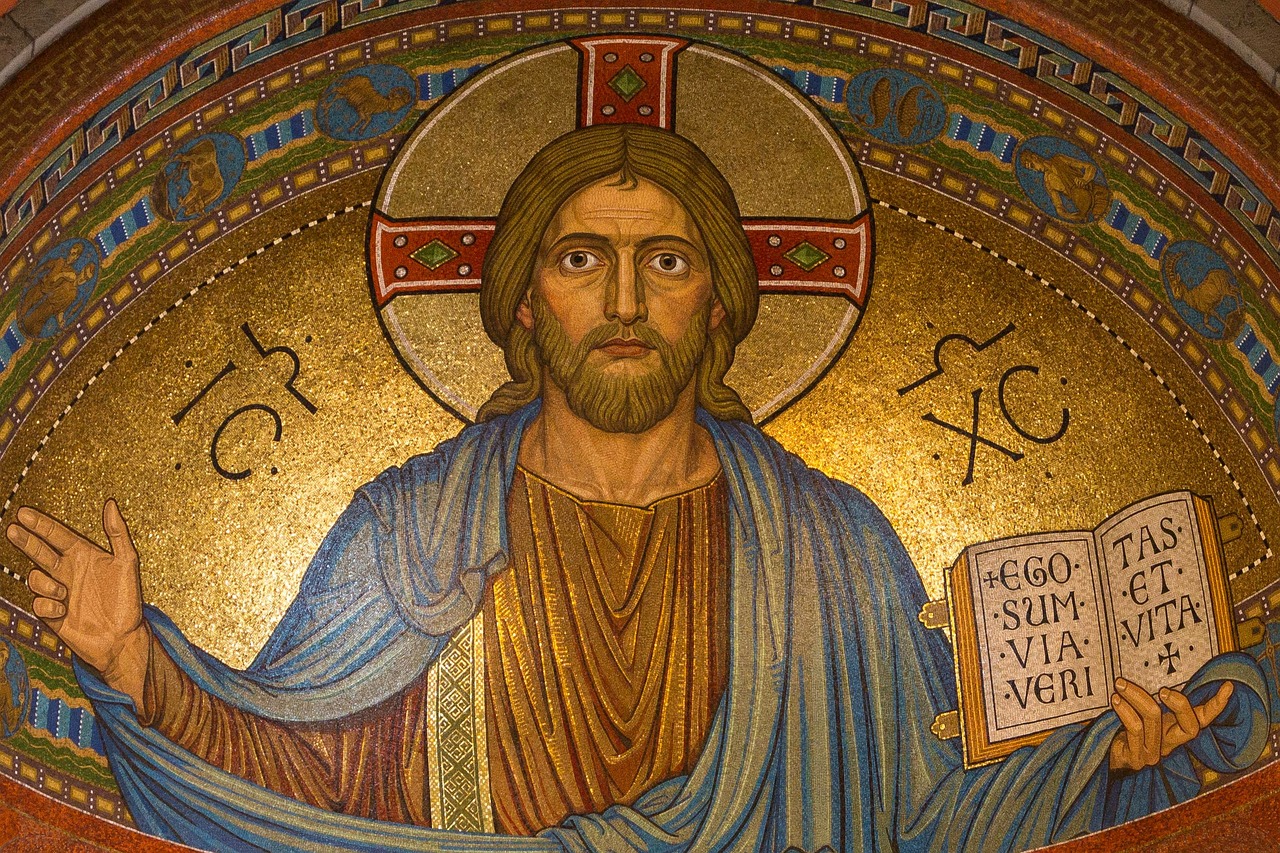Today’s readings all point Heavenward. They call us to give up the vanity of earthly thinking, of “toil and anxiety of heart” (Ecc. 1) and the things that pass, to “seek what is above” (Col 3).
We are reminded to listen to the voice of God, and we can do this only when we “number our days aright” and thereby “gain wisdom of heart” (Psalm 90). When we are aware that this current mode of life is short, we keep our eyes on the life that is waiting for us, “where Christ is seated at the right hand of God” (Col 3).
Jesus responds to the man asking him to arbitrate an inheritance dispute with his brother by pointing beyond the immediate disagreement: “one’s life does not consist of possessions,” and telling a parable to remind us of the shortness of this life, and the poverty of earthly “riches.”
We all find it easier to focus on the things before us, the things that demand our immediate attention, the things by which we measure our effectiveness and fruitfulness. We all find it easier to store up some kind of treasure right here – it may be money, experiences, knowledge, influence, order, good causes, or even some spiritual treasure, like religious art or prayer books or devotions. These give us a sense of satisfaction and security because they are tangible in some way. But Scripture calls us to surrender our own ideas of what constitutes real treasure, reminding us that what is of true value is hidden.
We must work to “think of what is above, not of what is on earth” because our “life is hidden with Christ in God” (Col 3). In another place, Jesus tells us to store up treasures in heaven (Matt 6:20), where moth and rust do not destroy; and at the end of his life, he tells Pilate, “My kingdom is not of this world” (Jn 18:36).
The Kingdom of Heaven is unlike any kingdom on earth, and Jesus’ mission to establish this Kingdom among us continues through the work of the Church. We, too, must make the eternal Kingdom the priority in our own lives, and in the life of the world. Jesus turned the values of this world upside down, illustrating how far from our ways are God’s ways. By walking with Christ in every moment, we learn to value what he values, we build up treasure in Heaven, and Christ at last “is all and in all” (Col 3).
Todas las lecturas de hoy apuntan al Cielo. Nos llaman a renunciar a la vanidad de los pensamientos terrenales, a los “trabajos y afanes” (Ecl 1) y a las cosas pasajeras, para buscar “los bienes de arriba” (Col 3).
Se nos recuerda que debemos escuchar la voz de Dios, y solo podemos hacerlo cuando veamos “lo que es la vida” y así “seremos sensatos” (Salmo 90). Cuando somos conscientes de que este estilo de vida actual es corto, mantenemos la mirada puesta en la vida que nos espera, “donde está Cristo, sentado a la derecha de Dios” (Col 3).
Jesús responde al hombre que le pide que arbitre una disputa de herencia con su hermano señalando más allá del desacuerdo inmediato: “la vida del hombre no depende de la abundancia de los bienes que posea”, y contando una parábola para recordarnos la brevedad de esta vida y la pobreza de los “bienes” terrenales.
A todos nos resulta más fácil concentrarnos en las cosas que tenemos delante, en las que exigen nuestra atención inmediata, en las que medimos nuestra eficacia y fecundidad. A todos nos resulta más fácil acumular algún tipo de tesoro aquí mismo: puede ser dinero, experiencias, conocimiento, influencia, orden, buenas causas o incluso algún tesoro espiritual, como arte religioso, libros de oración o devociones. Estos nos dan una sensación de satisfacción y seguridad porque son tangibles de alguna forma. Pero la Escritura nos llama a renunciar a nuestras propias ideas sobre lo que constituye un verdadero tesoro, recordándonos que lo que tiene verdadero valor está oculto.
Debemos esforzarnos por poner “todo el corazón en los bienes del cielo, no en los de la tierra”, porque nuestra “vida está escondida con Cristo en Dios” (Col 3). En otro pasaje, Jesús nos dice que acumulemos tesoros en el cielo (Mt 6,20), donde la polilla y el óxido no destruyen; y al final de su vida, le dice a Pilato: “Mi reino no es de este mundo” (Jn 18,36).
El Reino de los Cielos es diferente a cualquier reino terrenal, y la misión de Jesús de establecerlo entre nosotros continúa a través de la obra de la Iglesia. Nosotros también debemos hacer del Reino eterno la prioridad en nuestras vidas y en la vida del mundo. Jesús revolucionó los valores de este mundo, ilustrando cuán lejos de nuestros caminos están los caminos de Dios. Al caminar con Cristo en cada momento, aprendemos a valorar lo que él valora, acumulamos tesoros en el Cielo, y Cristo, finalmente, “es todo en todos” (Col 3).
 Kathryn Mulderink, MA, is married to Robert, Station Manager for Holy Family Radio. Together they have seven children (including Father Rob), and eleven grandchildren. She is President of the local community of Secular Discalced Carmelites and has published five books and many articles. Over the last 30 years, she has worked as a teacher, headmistress, catechist, Pastoral Associate, and DRE, and as a writer and voice talent for Catholic Radio. Currently, she serves the Church by writing and speaking, and by collaborating with various parishes and to lead others to encounter Christ and engage their faith. Her website is www.KathrynTherese.com
Kathryn Mulderink, MA, is married to Robert, Station Manager for Holy Family Radio. Together they have seven children (including Father Rob), and eleven grandchildren. She is President of the local community of Secular Discalced Carmelites and has published five books and many articles. Over the last 30 years, she has worked as a teacher, headmistress, catechist, Pastoral Associate, and DRE, and as a writer and voice talent for Catholic Radio. Currently, she serves the Church by writing and speaking, and by collaborating with various parishes and to lead others to encounter Christ and engage their faith. Her website is www.KathrynTherese.com
Feature Image Credit: Dimitrisvetsikas1969, pixabay.com/photos/clouds-sky-heaven-weather-nature-3353159/
The views and opinions expressed in the Inspiration Daily blog are solely those of the original authors and contributors. These views and opinions do not necessarily represent those of Diocesan, the Diocesan staff, or other contributors to this blog.

